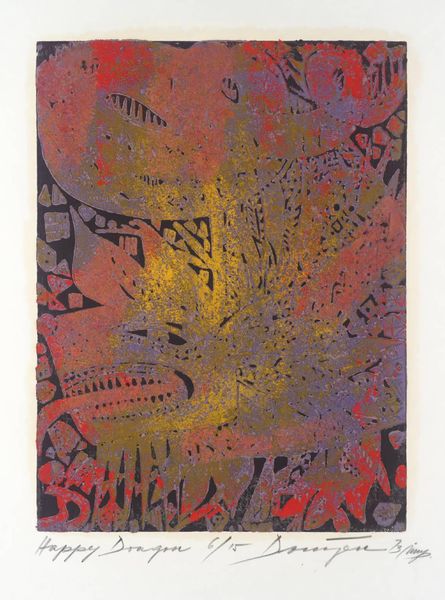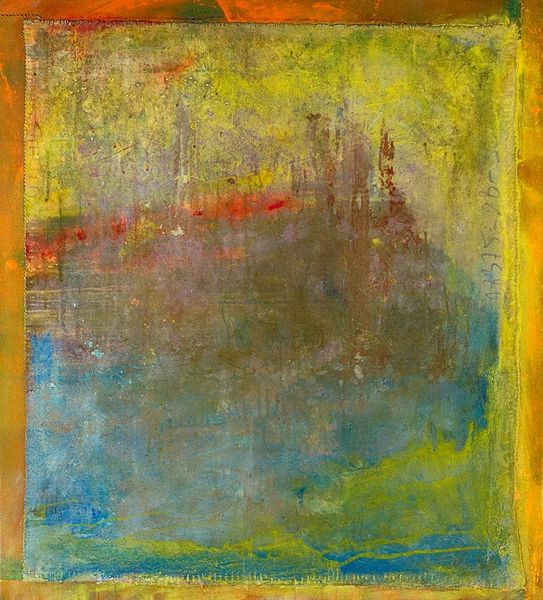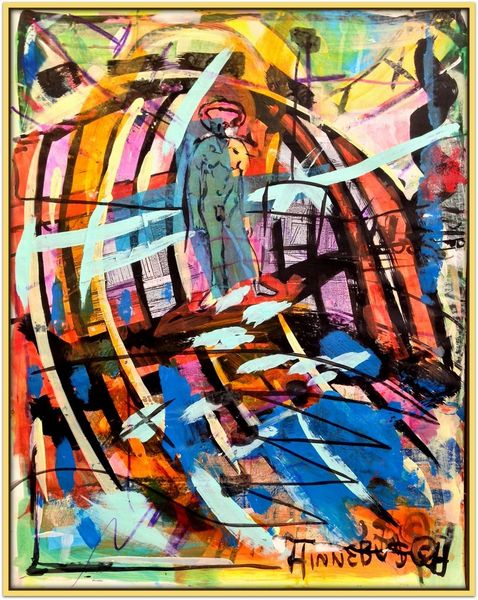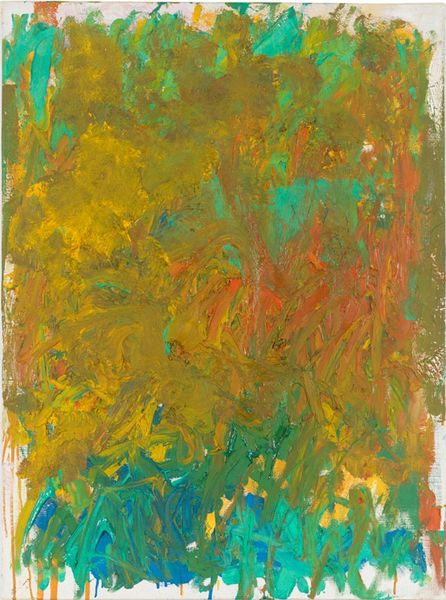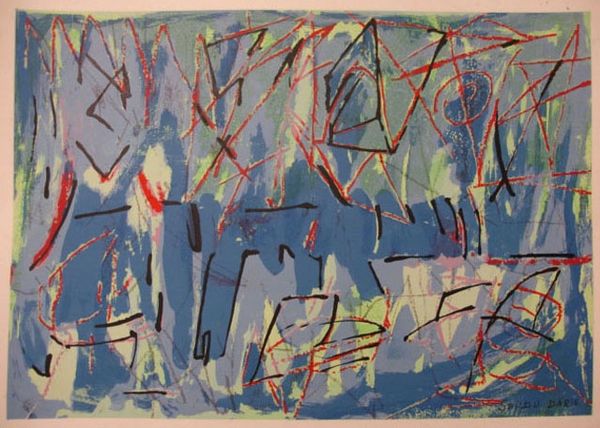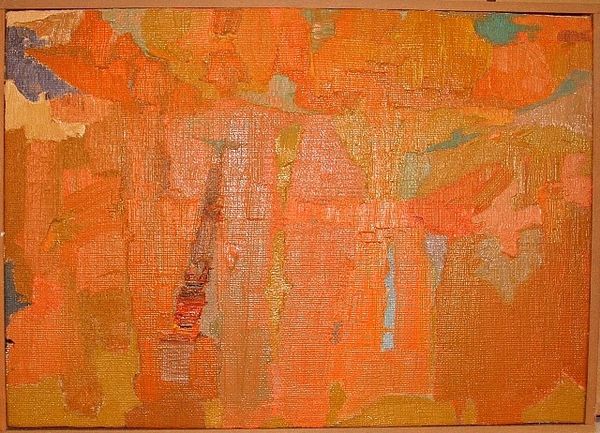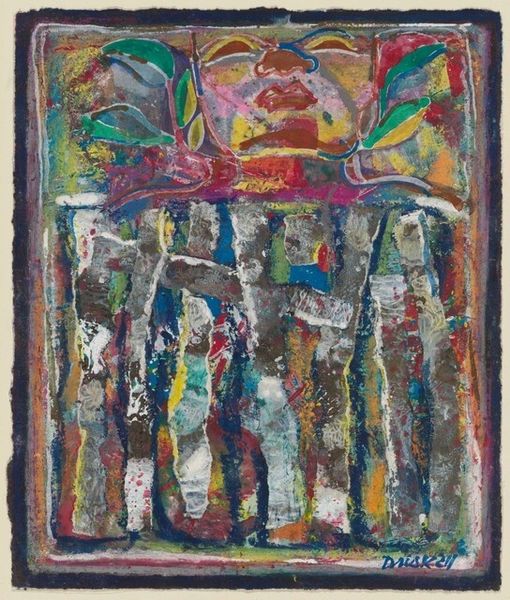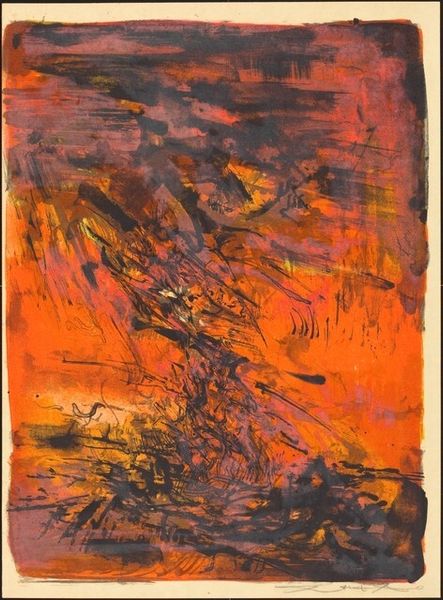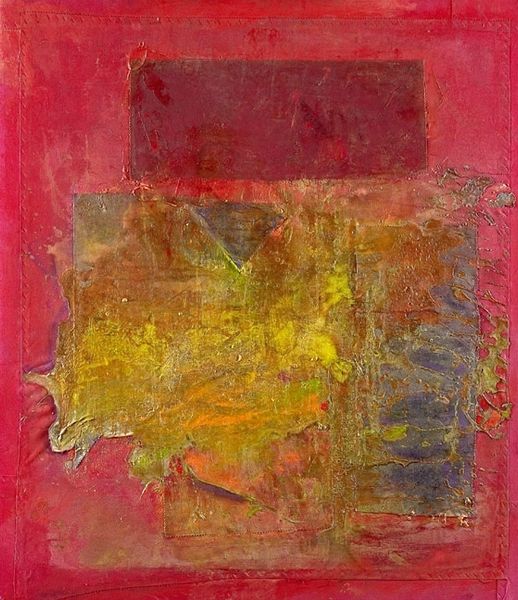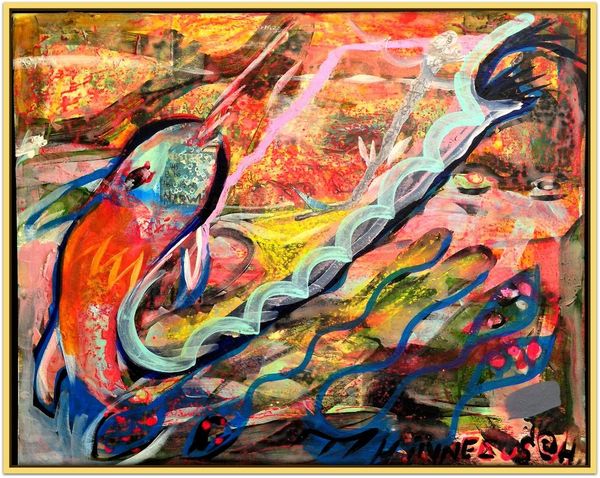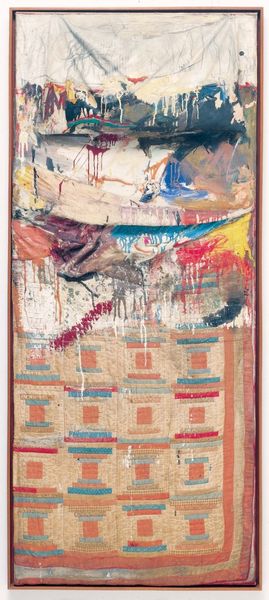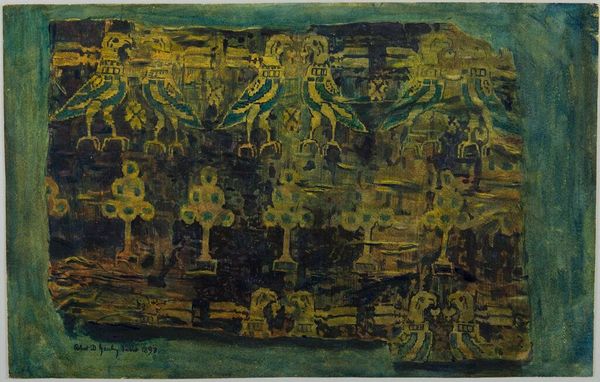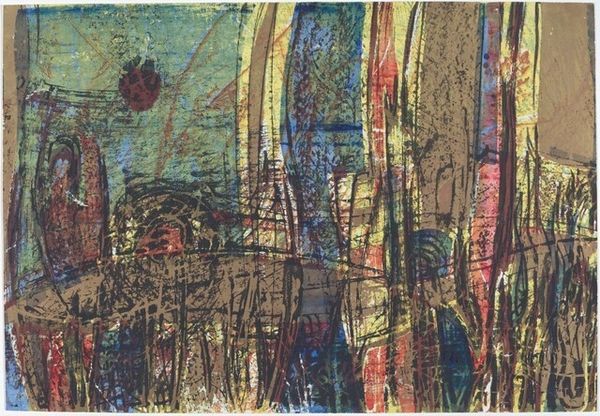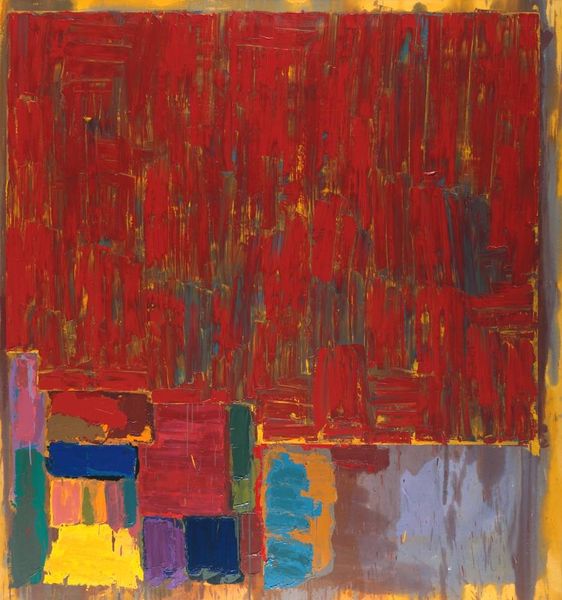
painting, print, watercolor
#
abstract painting
#
painting
# print
#
form
#
watercolor
#
acrylic on canvas
#
abstraction
#
line
#
modernism
#
watercolor
Dimensions: sheet: 14.29 × 10.8 cm (5 5/8 × 4 1/4 in.)
Copyright: National Gallery of Art: CC0 1.0
Curator: Looking at this work, "Abstract Composition," by Ynez Johnston from the 1950s, executed in watercolor, acrylic and print, one immediately notes the blending of vivid colors with intricate linework. What strikes you initially about it? Editor: It evokes a dreamlike landscape, doesn't it? There's a certain calmness in the color palette, yet also a playful chaos in the composition. I wonder about the artist's intention with these contrasting elements. Is this tranquility or some kind of underlying tension? Curator: Johnston’s career, deeply influenced by both European Modernism and pre-Columbian art, often presents this type of dichotomy. There's an undeniable formalism, focusing on pure visual elements like color and line, typical of Modernist abstraction. Yet the work has this visual vocabulary inspired by Indigenous art and symbolism. Editor: Interesting. Do you see any specific pre-Columbian influences at play? And does it challenge art historical assumptions? Curator: We observe the geometric abstraction which evokes Indigenous symbology; for instance, note the repetition of certain geometric patterns. One could analyze this approach as a conversation between Johnston and established movements. What happens when abstraction collides with socio-cultural narratives and identities? I consider this painting a symbol for freedom of expression, given how constrained art was during that time. Editor: Right, especially regarding discussions about gender, race, and the politics of imagery at the time, making her exploration and celebration of these art forms and other identities even more remarkable. It’s easy to see a connection to current issues when reflecting on Johnston's career as we celebrate her. What is truly at stake with this work? Curator: Johnston’s painting certainly reflects back contemporary theory that attempts to decolonize art and reveal what assumptions shape museums' collecting habits or gallery programs today. This allows us to acknowledge how gender impacts the development of painting throughout history as we examine institutions now. Editor: It certainly broadens and diversifies narratives while acknowledging these works within greater intersectional narratives of politics, identity, and gender. Curator: I think reflecting on the forces influencing its creation reveals that an Abstract Composition becomes a testament to visual culture overall! Editor: A good perspective; by examining "Abstract Composition" critically, one sees that Ynez Johnston's legacy certainly promotes visual art for everyone.
Comments
No comments
Be the first to comment and join the conversation on the ultimate creative platform.
